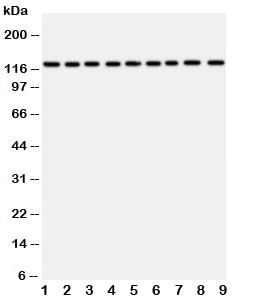Cookie preferences
This website uses cookies, which are necessary for the technical operation of the website and are always set. Other cookies, which increase the comfort when using this website, are used for direct advertising or to facilitate interaction with other websites and social networks, are only set with your consent.
Configuration
Technically required
These cookies are necessary for the basic functions of the shop.
"Allow all cookies" cookie
"Decline all cookies" cookie
CSRF token
Cookie preferences
Currency change
Customer-specific caching
FACT-Finder tracking
Individual prices
Selected shop
Session
Comfort functions
These cookies are used to make the shopping experience even more appealing, for example for the recognition of the visitor.
Note
Show the facebook fanpage in the right blod sidebar
Statistics & Tracking
Affiliate program
Conversion and usertracking via Google Tag Manager
Track device being used

| Item number | Size | Datasheet | Manual | SDS | Delivery time | Quantity | Price |
|---|---|---|---|---|---|---|---|
| NSJ-R30846 | 100 µg | - | - |
3 - 10 business days* |
772.00€
|
If you have any questions, please use our Contact Form.
You can also order by e-mail: info@biomol.com
Larger quantity required? Request bulk
You can also order by e-mail: info@biomol.com
Larger quantity required? Request bulk
0.5mg/ml if reconstituted with 0.2ml sterile DI water. Transient receptor potential cation... more
Product information "Anti-TRPC3"
0.5mg/ml if reconstituted with 0.2ml sterile DI water. Transient receptor potential cation channel, subfamily C, member 3, also known as TRP3, is expressed in megakaryocytic cell lines and therefore may play a role in calcium homeostasis in megakaryocytes and platelets. Using patch-clamp and whole-cell recordings of human embryonic kidney cells transfected with TRPC3, the protein behaved as an inositol phosphate and diacylglycerol-gated channel, but not as a store-operated channel. The TRPC3 gene, but not other TRPC genes, was damaged in several mutant T-cell lines with defective calcium influx, resulting in expression of truncated transcripts. Reduced calcium channel activity could be reversed by restoration of wildtype TRPC3. It is part of endogenous calcium channels in T lymphocytes and contributes to T-cell receptor-dependent calcium entry into T cells. Neuropathologic studies showed impaired growth and differentiation of dendritic arbors of the Purkinje cells, suggesting that normal TRPC3 plays a role in the development and survival of cerebellar Purkinje cells. Protein function: Thought to form a receptor-activated non-selective calcium permeant cation channel. Probably is operated by a phosphatidylinositol second messenger system activated by receptor tyrosine kinases or G- protein coupled receptors. Activated by diacylglycerol (DAG) in a membrane-delimited fashion, independently of protein kinase C, and by inositol 1,4,5-triphosphate receptors (ITPR) with bound IP3. May also be activated by internal calcium store depletion. [The UniProt Consortium]
| Keywords: | Anti-TRP3, Anti-TrpC3, Anti-TRP-3, Anti-TRPC3, Anti-hTrp3, Anti-hTrp-3, Anti-Transient receptor protein 3, Anti-Short transient receptor potential channel 3, TRPC3 Antibody |
| Supplier: | NSJ Bioreagents |
| Supplier-Nr: | R30846 |
Properties
| Application: | WB, IHC (paraffin) |
| Antibody Type: | Polyclonal |
| Conjugate: | No |
| Host: | Rabbit |
| Species reactivity: | human, mouse, rat |
| Immunogen: | Amino acids 836-851 (HSFNSILNQPTRYQQI) |
| Format: | Purified |
Database Information
| KEGG ID : | K04966 | Matching products |
| UniProt ID : | Q13507 | Matching products |
| Gene ID : | GeneID 7222 | Matching products |
Handling & Safety
| Storage: | +4°C |
| Shipping: | +4°C (International: +4°C) |
Caution
Our products are for laboratory research use only: Not for administration to humans!
Our products are for laboratory research use only: Not for administration to humans!
Information about the product reference will follow.
more
You will get a certificate here
Viewed





